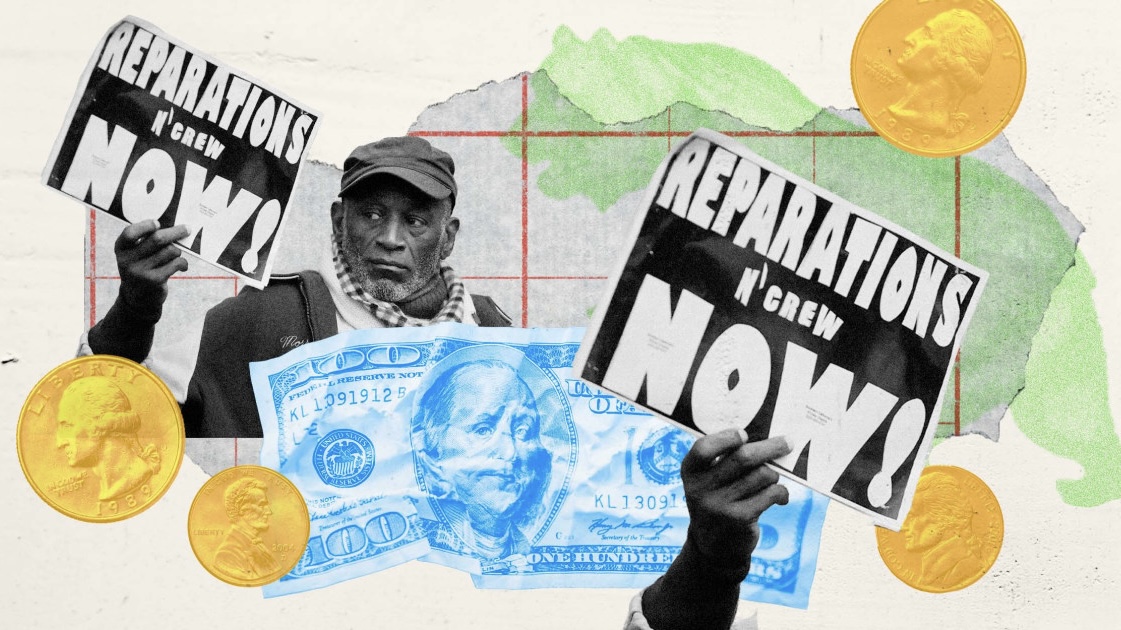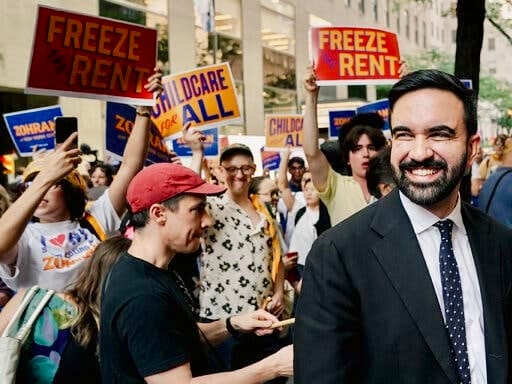Reparations: San Francisco says “Sorry,” but no cash
Remember when you were dating, and you got a handshake instead of a kiss?
Now imagine you got a handshake instead of $5 million.

That’s how some Black San Franciscans are feeling after the San Francisco Board of Supervisors issued a formal apology for slavery, racism, and discrimination, but not one red cent in reparations.
Earlier, the San Francisco African-American Reparations Advisory Committee had issued a report with more than 100 recommendations on how to put things right in a state that never had slavery and whose population is only 5% Black, while the national statistic is 13%.
When being organized, the committee was mandated to include someone displaced by gentrification, someone who had been incarcerated, someone who is or was homeless, someone between 14-24 who had worked with African-American community groups, a parent or guardian, and someone who had or does live in public housing, in addition to people with actual financial and technical knowledge.
But those requirements were not the howlers.
The laugh-out-loud element was the “ask,” which started with a $5 million lump sum cash payment, plus $97,000 a year, plus free housing, education, and a lifetime supply of Happy Meals. (OK, I am joking about the Happy Meals, but I already reacted to the demands in a previous column you can find here.)
Instead of satisfying the insane demands for ransom money, the Board of Supervisors issued the apology, with some of them indicating there might be something tangible in the pipeline.
Gov. Gavin Newsom earlier praised a state reparations task force for its work — because there is no such thing as excessive virtue signaling — but was unusually silent on the “ask” for the $5-million-plus. That’s probably explained by the uncomfortable fact that California — for the first time in history — is losing population, and a reverse racial gold rush would bankrupt the state. Money is an issue. San Francisco Mayor London Breed, who is Black, eliminated $4 million from the city budget for a proposed reparations office.
Which is not to say that some form of reparations might be approved, there and elsewhere. Even Philadelphia is studying the idea, and a Philly apology would be a slam dunk.
But cash on the barrelhead? That’s a half-court shot with the Palestra lights turned off.
It. Won’t. Happen.
In the past, reparations money has been paid, but to people who directly suffered — such as Japanese internees in the U.S., and Jewish Holocaust survivors — but not to their descendants.
But that doesn’t slam the door on other kinds of redress, such as I discussed here.
When Newsom failed to produce moolah, a group of Black Californians — not all Black Californians, certainly — began chanting something like, we don’t get your money, you don’t get our votes, which reduces a moral wrong to a cash equation. It becomes transactional, and ugly.
That’s what happens when you offer people free stuff. They lose their minds.
Like the young people with college debt. President Joe Biden — in a nakedly transactional move — promised to wipe away their debt in exchange for their votes. After he whet their appetite for ill-gotten gains, and did not produce, they abandoned him.
So we have a generally meritorious idea — acknowledging America’s racist past, coupled to a coarse one — cash payments.
Fewer than one-third of Americans support cash payments for past wrongs. And that number is dropping.
Americans are generally fair-minded and could see some form of assistance — such as in housing, employment and education — to those whose ancestors suffered discrimination.
But cash to individuals? That will fly as well as a penguin.



